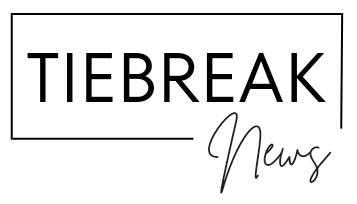
Rafael Nadal burst onto the scene at a very young age. He gathered notable results and became one of the most successful teenagers in the game’s history. For some ten years after Novak Djokovic, Andy Murray, Juan Martin del Potro, Marin Cilic and Kei Nishikori, teens had a steep path towards the top of men’s tennis. One of the names that emerged as a strong contender was Alexander Zverev, a talented German who cracked the top-20 in October 2016 and claimed two ATP titles before the following spring. Alexander came to Monte Carlo in 2017 two weeks after reaching his first Masters 1000 quarter-final in Miami. The German stood above all other U21 players and wished for another deep run at his home event. Nadal and Zverev were scheduled to meet in the third round by the draw’s will.
They passed the first obstacles to set the clash on April 20, the day Alexander celebrated his 20th birthday. Nadal certainly did not give the youngster a present he wanted, breezing past the German 6-1, 6-1 in 68 minutes to reach the 13th quarter-final in the Principality. It was Rafa’s milestone 60th victory at one of his favorite events from 64 encounters! They had played twice before, in Indian Wells 2016 and three months ago in Melbourne. Nadal had to dig deep to grab wins in those, as Zverev pushed him to the limits. This encounter was quite the opposite, as Rafa ruled the court and dominated from start to finish, using all of his advantages on the slowest clay. Zverev could do nothing against Nadal as a birthday boy, making plenty of errors from both wings and never finding a good rhythm.
Rafael Nadal beat Alexander Zverev 6-1, 6-1 in the 2017 Monte Carlo third round.
Zverev served at 67%, but it was a performance to forget outside nine service winners, getting broken five times in seven service games. On the other hand, Nadal was rock solid behind the initial shot, dropping seven points in seven service games and never facing a break chance or deuce. It was a fast and fluid battle, with half of the points landing in the area with four shots or less. Nadal built a healthy 28-18 advantage in those. The Spaniard had eight service winners, and, more importantly, his initial groundstrokes after serve or return were spot on. Zverev struggled to follow that pace and impose his strokes. Like with service winners, they had a similar number of winners from the field, with 11 for Rafa and nine for Alexander.
Forehand was the primary weapon for both, but they notched a few winners with volleys, while backhand stayed silent as they hit just one each. The unforced errors department was the one that drove Zverev away from any glimpse of a chance after spraying 30, 15 from a forehand and 11 from a backhand side. His groundstrokes were already among the best in the game at that point, but nothing worked for Alexander on that day. He could not find the rhythm or pace that would drive Nadal out of his comfort zone or make him work harder in the exchanges. Rafa stayed on eight unforced errors, unchallenged in the rallies after keeping a ball in play and waiting for his opponent to make an error.
Zverev had nine forced mistakes, four more than the Spaniard. His mistakes highlighted the entire match and spoiled a more entertaining battle and a quality clash that everybody wanted to see. Like in those shortest points, Nadal had the authority in the mid-range rallies from five to eight shots, taking 19 from 27 and securing eight out of 11 exchanges with nine to 12 strokes. Interestingly, Alexander stayed in touch in the eight most extended points, but that was far from enough to give him anything more than those two games against such a strong rival.
